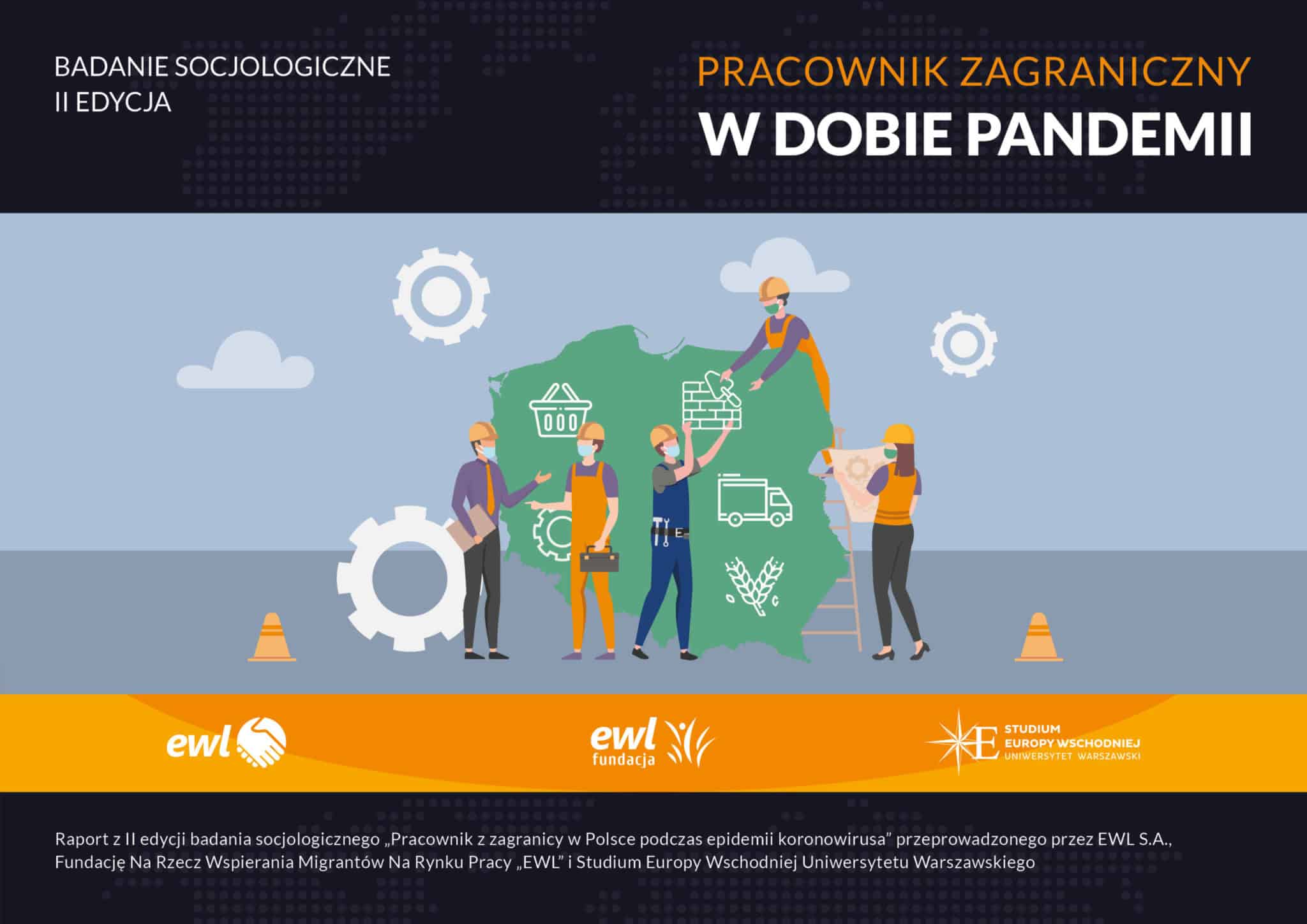Over 92% of foreign employees who decided to stay in Poland after the outbreak of the pandemic do not regret their decision. Only 1.6% of foreigners are of the opposite opinion. This is evidenced by the results of the sociological study ‘A foreign employee in Poland during the pandemic’ conducted by EWL S.A. and the Centre for East European Studies at the University of Warsaw.
Also in the case of migrants who came to Poland during the pandemic the decision to come to our country can be mainly evaluated as positive. According to the survey, over 89% of the respondents do not regret their decision to come and work in Poland after 14 March 2020. Only just over 2% of respondents do regret it.
Nevertheless, the coronavirus pandemic and the restrictions introduced in Poland because of it have also struck economic migrants. Almost 40% of the foreigners who remained in our country after the outbreak of the pandemic were forced to change their workplace during the pandemic, and almost one third of them were forced to change their employment sector.
Moreover, the study showed that over 42% of working foreigners have already benefited from the automatic extension of the permits for legal residence and work in Poland, proposed by the Polish government during the coronavirus pandemic. In the future, another 30% of foreign employees intend to use this solution.
‘The data obtained allow us to look into the future with optimism. The same applies to the systemic measures implemented by the Polish government this year, which together with the commitment of Polish business made it possible to keep a significant part of migrants on the market. A number of solutions introduced in this challenging period also translated into better moods on part of the employees themselves.’
comments Andrzej Korkus, CEO of EWL S.A. about the results of the study.
The second edition of the sociological study ‘A foreign employee during the pandemic’ was conducted in August and September 2020 by EWL S.A. and the Centre for East European Studies at the University of Warsaw. Using the CAWI (Computer Assisted Web Interview) method, 610 foreigners working in Poland were surveyed, mainly from Ukraine, Belarus, Moldova and Georgia.
Download the report [doc id=43400]





